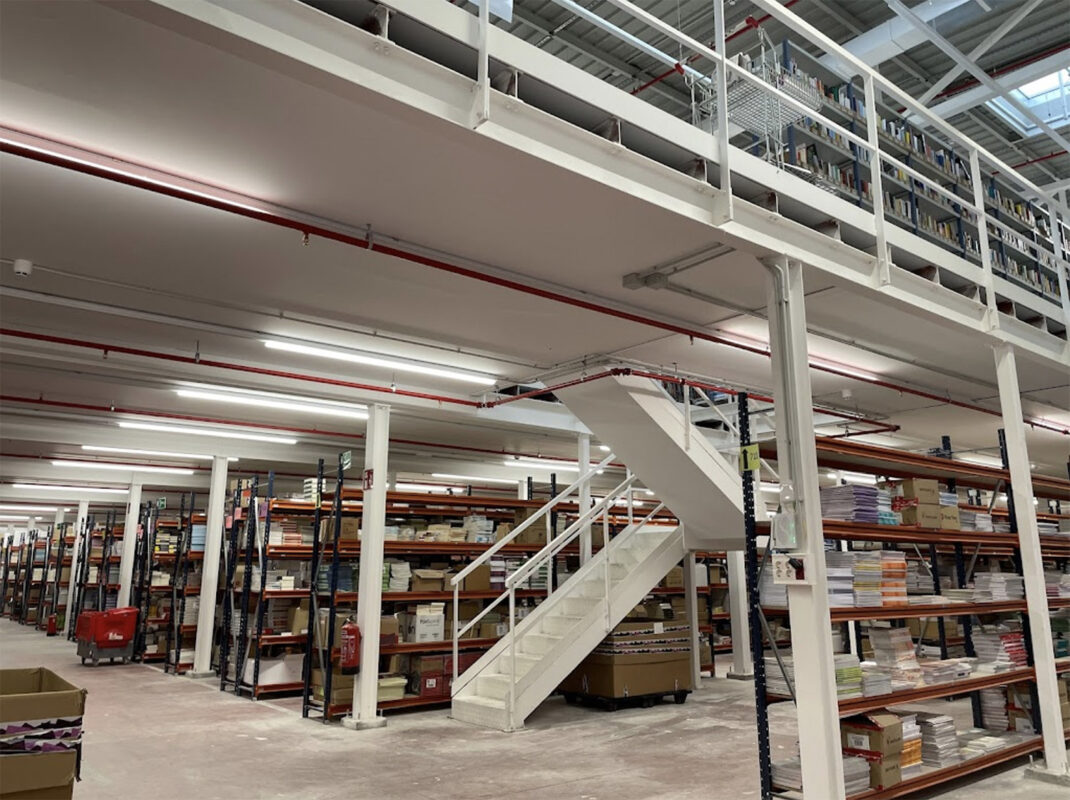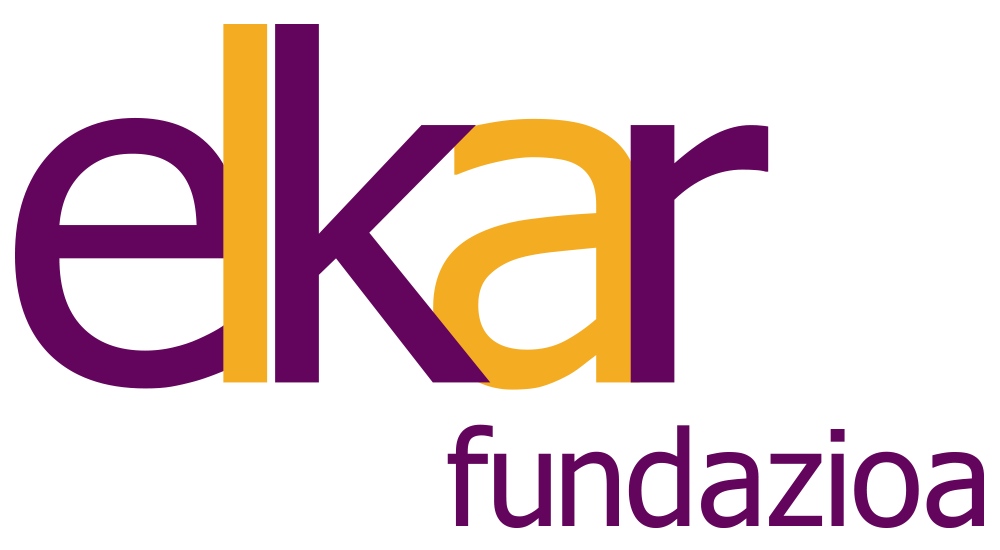Zure pribatutasuna garrantzitsua da guretzat
Cookie propioak eta hirugarrenenak erabiltzen ditugu gure webguneko edukiak baliagarriagoak izateko. ONARTU sakatzen baduzu cookie-n erabilera baimenduko duzu eta EZ ONARTU sakatuz ukatu egingo dituzu. INFORMAZIO GEHIAGO kontsulta dezakezu.
Brief history
The 1960s
At the end of the 1960s the Jaka brothers started doorstep sales of books, continuing the work done by one of them: Joseba Jaka.
Right from the start they worked with ikastolas in order to meet their needs for educational materials. For example, 1,500,000 pesetas from book sales were donated to Gordailu to set up an ikastola library.
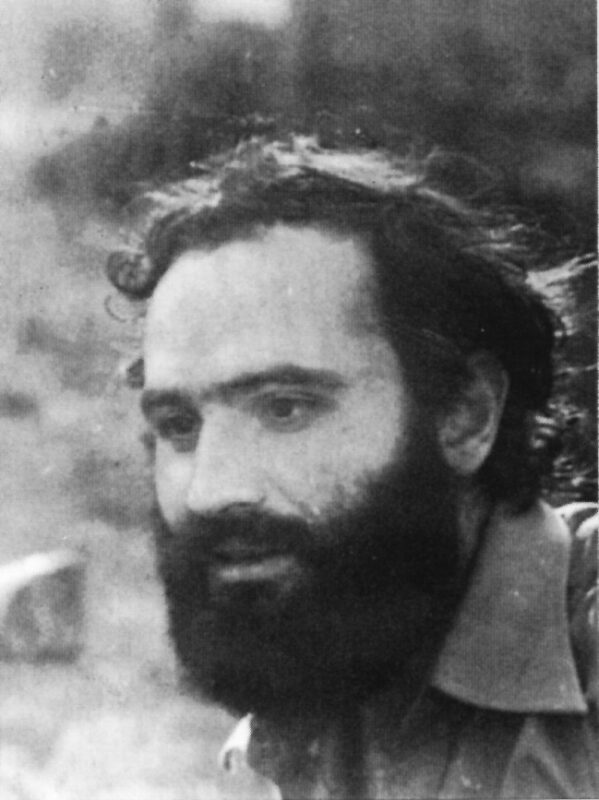
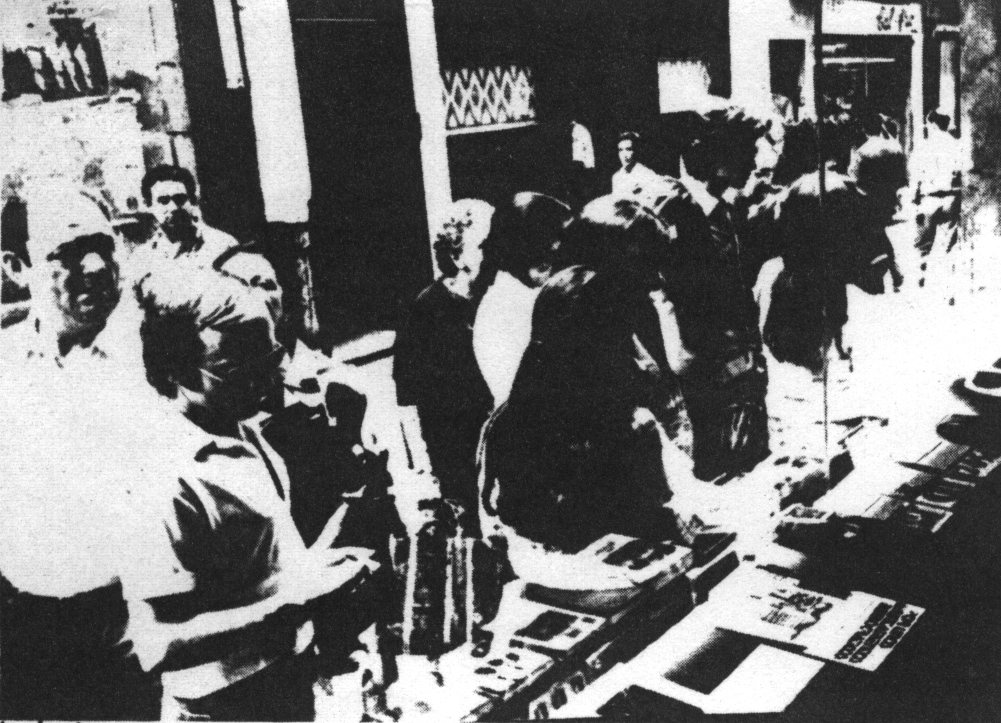
The 1970s
The 1970s saw the early stages in the group’s development.
In 1972, a group of 20 cultural activists from Ipar Euskal Herria, the French Basque Country, founded ELKAR, a name that has been used more for the meaning of the word, from elkarlana, which means collaboration, than as the original acronym, Euskal Liburu eta Kantuen Argitaldaria.
In 1976, after the dictator Franco’s death, they opened their first bookshop over the Spanish border, specifically in Donostia (San Sebastián), to raise the profile of Basque books. These first steps established the basis of today’s elkar Fundazioa.
Main landmarks: the 1970s
At the end of the 1960s
Joseba Jaka started doorstep sales of books. Soon afterwards he was joined by his brothers, first Goio and then Jon. They started to distribute material to ikastolas and to generate resources to produce it, in partnership with Gordailu.
1972
20 euskaltzaleak (Basque language enthusiasts) in Ipar Euskal Herria, the French Basque Country, set up Elkar argitaletxea to produce and distribute Basque books and records. This group included, among others, figures connected with the world of Basque song and letters.
Elkar disketxea was born out of the purchase of the publisher Goiztiri’s book and record business. ELKAR (Euskal Liburu eta Kantuen Argitaldaria) was founded.
1974
The group of 40 founding partners was set up after the original group of 20 was joined by another 20 people from Hego Euskal Herria, the Spanish Basque Country.
Opening of Zabal in Baiona (Bayonne) as a bookshop and distributor.
1976
The Jaka brothers, who had taken the first steps in direct sales and in distribution in the late 60s, opened Bilintx liburu-denda in the old quarter of Donostia. The aim of Bilintx was to fill the gap that existed in terms of publications both on Basque topics and on political and economic ones, as well as magazines and educational materials.
Startup of the distribution service Zabaltzen, driven by the pressing need to lift Basque books and records out of anonymity and clandestinity and distribute them to bookshops and schools throughout the Basque Country.
1977
Startup of Elkar argitaletxea in Donostia: it now had two sites: Baiona and Donostia. The aim was meet ikastolas’ urgent need for books, especially children’s books, and publish this material in the Basque Country without having to go abroad for it. Books and stories of all kind for children, young people and adults were published: traditional stories, classics of European literature, translations, collections of comic books, educational books and so on. Joint editions were also used to publish the most famous, attractive books of children’s literature in Basque.
1978
Startup of the distributor Zabaltzen in Bilbo.
Acquisition of the catalogue of the record label Artezi.
The 1980s
In the following decades, the 1980s, the network of bookshops expanded to different places in Gipuzkoa province, as well as Iruña (Pamplona) and Bilbo (Bilbao). In 1977 the publisher opened its second site in Donostia, specialising in the development of educational materials in partnership with people in education, publishing materials in collaboration with UZEI, Elhuyar and the association Bostak bat, and later with the ikastolas themselves. The group also opened a recording studio.
Main landmarks: the 1980s
1982
Startup of the distributor Zabaltzen in Iruña.
1983
Elkar disketxea opened its studios in Lasarte.
In view of the urgent needs in the educational field, Elkar argitaletxea redoubled its efforts to produce educational materials and published textbooks and materials for all levels and types of education. To do this, it worked with different organisations in the world of Basque education and culture, primarily with UZEI (1980), Elhuyar (1983), GILE –Irakasleen Elkartea– (1983) and GIE –Gipuzkoako Ikastolen Elkartea– (1989).
Acquisition of the catalogue of the record label Herri Gogoa.
1984
Acquisition of the record label Soinua (from 1987, Oihuka).
1985
Xalbador liburu-denda set up in a former capital of the Basque Country: Iruña.
1986
Acquisition of Etxepare liburu-denda in Bergara, which was renamed Etxepare-Bilintx.
1988
Acquisition of Ramos liburu-denda in Donostia.
1989
Opening of Bilintx liburu-denda in Tolosa.
Acquisition of Mayre liburu-denda in Irun, from then on known as Bilintx. In 1996 it merged with Bertso-Hop, taking the name Bertso-Hop Bilintx.
Emankor S.A. was set up to take over ownership of all the companies’ fixed assets.
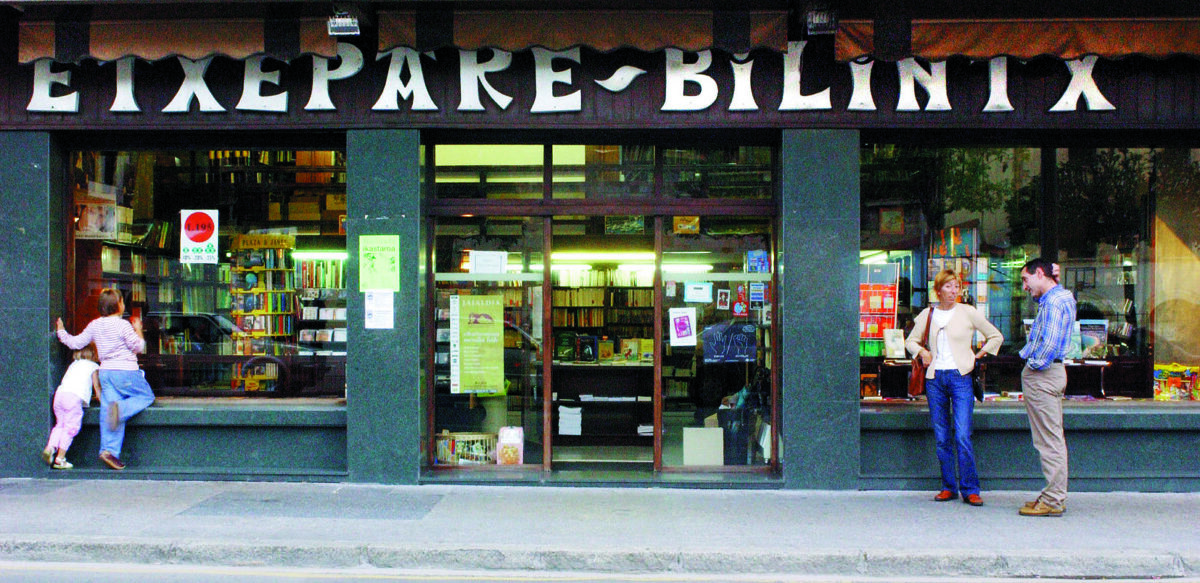
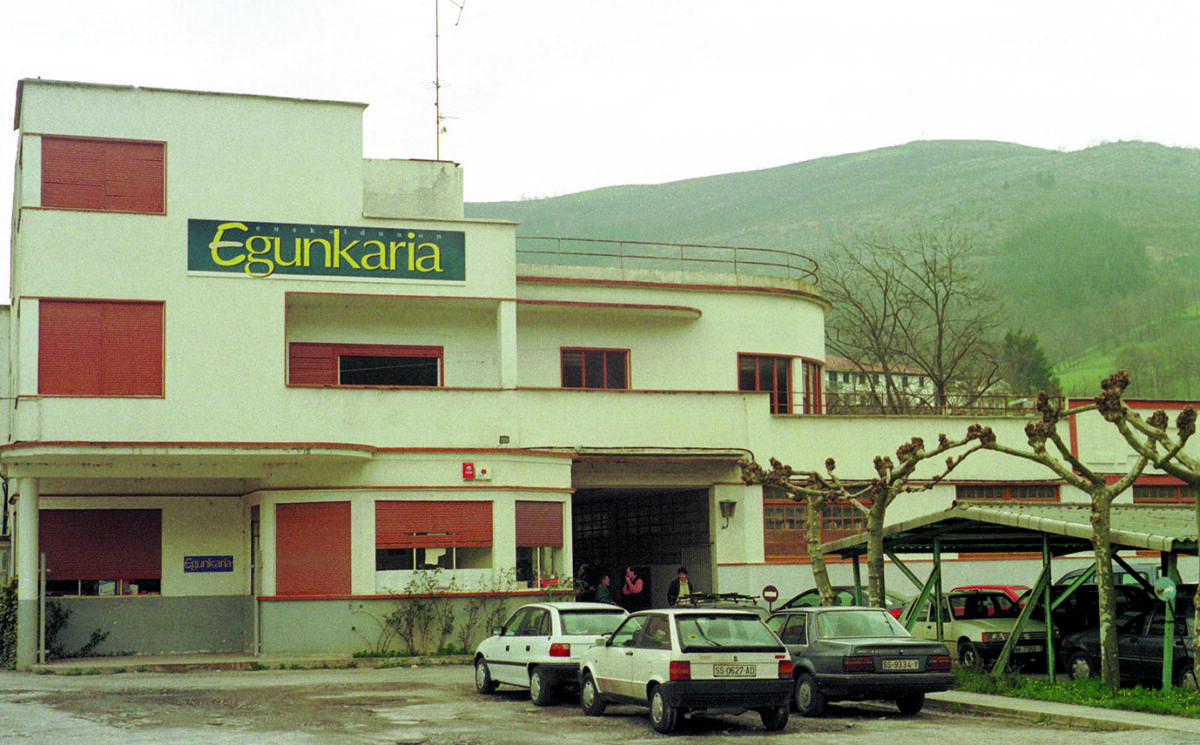
The 1990s
In the 1990s it took a major leap forward. At the same time as it expanded its network of bookshops, it began selling beyond the Basque Country, creating infrastructures in Madrid and Barcelona.
In 1996 elkar Fundazioa was set up, in line with the group’s initial philosophy: to foster Basque culture and reinvest profits in it. Publishers Ttarttalo and Sua joined the group.
elkar Taldea playted an active part in setting up the newspapers Egunkaria, in 1990, and Berria, in 2003. A year before, Martin Ugalde Kultur Parkea had opened for the first time.
Main landmarks: the 1990s
1990
Opening of Urretxindorra liburu-denda in Bilbo.
Founded in 1983, Ttarttalo argitaletxea continued its work within elkar Taldea.
Opening of the first Cash point of sale in Bilbo, in order to improve service for professionals. This initiative was subsequently extended to the other Basque provincial capitals.
1991
Acquisition of Xalem liburu-denda in Iruña.
Eusenor was set up by elkar, UZEI, Elhuyar and GIE to focus on encyclopaedic work.
Acquisition of the catalogue of the record label Xoxoa.
1992
Opening of the new headquarters of the distributor Zabaltzen in Igara (Donostia), centralising the group’s publisher, recording studio, distribution and main services.
Acquisition of Herriak liburu-denda in Bilbo, following the retirement of its owner.
1994
After the Bilintx megadenda conversion, the process began of turning bookshops in provincial capitals into ‘megastores’.
Distribution companies set up with different partners in Barcelona, Madrid and Valencia. The aim of this expansion of the retail network is to improve the overall service in the Basque Country and beyond, seeking to boost demand at these points and distribute our products outside the Basque Country.
1995
Opening of Arriaga Informatika-Ofimatika denda in Gasteiz (Vitoria).
Incorporation of Sua argitaletxea – set up in 1988 – into elkar Taldea.
1996
Death in an accident of Joseba Jaka, colleague and founder of the elkar Taldea companies.
The music distributor Doinua offers its services through the group.
Elkar Fundazioa was set up, initially under the name Euskalgintza Elkarlanean Fundazioa, the most important milestone in the decade and 25 years after the project originally began. This foundation is not limited to compiling our cultural heritage, but was set up with a more ambitious aim. Taking over its member companies’ assets, it seeks to set goals and steps in Basque cultural activity, as well as assuring the original philosophy and way of working that guided our founders.
Mari Jose Irizar was appointed the first president of the foundation.
The Joseba Jaka grant was set up to foster and support literary creativity.
1997
Flooding in Donostia seriously affected the headquarters.
Death of Jean-Louis Maitia, colleague and partner in elkar Taldea.
elkar Fundazioa, together with Egunkaria and Gráficas Lizarra, set up Buruntzape with a view to constructing Martin Ugalde Kultur Parkea as a landmark and meeting place for Basque culture.
elkar Fundazioa helped to set up Euskararen Gizarte Erakundeen Kontseilua and was chosen as a member of its General Management.
1998
Startup of elkar.com, today elkar.eus.
1999
Opening of Mattin liburu-denda in Baiona.
Opening of Arriaga paperdenda eta megadenda in Gasteiz.
Startup of ACL (Madrid), MCL, BCN Books (Barcelona) and Eurollibres (Valencia). The aim of this expansion of the retail network is to improve the overall service in the Basque Country and beyond, seeking to boost demand at these points and distribute our products outside the Basque Country.
The 2000s
In the 2000s the group continued to consolidate its position. It expanded its sales and distribution network, and played a part in new business and cultural initiatives, including Ikaselkar, Hamaika and Irrien Lagunak. The publisher Txertoa joined the group.
Main landmarks: the 2000s
2000
Startup of the publisher and distributor Elkarlanean in Baiona.
Opening of Arriaga Campus liburu-denda in the UPV/EHU, University of the Basque Country (Gasteiz).
elkar Fundazioa sets up the company Plazagunea together with Egunkaria, with the aim of providing IT services.
Creation of the company Euskal Gaiak Abarka, devoted to special offers and organisation of markets.
2001
The corporate image of the companies that make up the Foundation was updated.
In spring judge Garzón began an operation against Zabaltzen, with the proceedings coming to an end in autumn.
Boza Ediziogunea was set up to protect and manage copyright for Basque authors.
2002
Work ended and Martin Ugalde Kultur Parkea was opened.
elkar Fundazioa and Gráficas Lizarra set up Leitzaran Grafikak, to design, print and bind books, magazines and brochures.
2003
On 20th February Joan Mari Torrealdai, a member of the Foundation’s Board of Patrons, was arrested with other Basque cultural figures as part of operation Egunkaria, set in motion by judge Del Olmo.
On 16th October elkar members Mikel Arrizabalaga, Xabier Legarra and Joxemari Sors were arrested together with 5 other people on the orders of judge Del Olmo.
Egunkaria and Basque culture were the victims of a grievous injustice. Time proved what had been obvious from the start in the Basque Country: that this was completely unfounded. In 2010 all the accused were found not guilty in a decision by the Spanish national high court. In 2014 the provincial court in Donostia closed the financial case. Unfortunately the damage had already been done.
2005
Opening of elkar Arrasate liburu-denda.
elkar Fundazioa, together with other organisations (Euskaltel, Berria, Gara, Noticias-Deia and Bainet-Asegarce), set up Hamaika Telebista Hedatzeko Taldea, with a clear goal: to lay the foundations for a Basque-language television channel.
2006
elkar Arrasaten liburu-denda berria ireki da.
Hamaika Telebista Hedatzeko Taldea enpresaren sorreran parte hartu du Elkar Fundazioak beste zenbait enpresekin batera (Euskaltel, Berria, Gara, Noticias-Deia eta Bainet-Asegarce) eta helburu argi batekin: Euskarazko Telebista berri baterako oinarriak jartzea.
2007
elkar Fermin Calbeton liburu-denda (formerly Bilintx) was 30 years old and was fully refurbished, setting up a venue to hold cultural events.
The old Bilintx premises became elkar Bidaiak eta Hizkuntzak liburu-denda.
2008
Opening of elkar Hernani liburu-denda as a successor to the former Lete bookshop.
Opening of elkar Licenciado Poza liburu-denda following the closure of Herriak liburu-denda.
Opening of new venues for cultural events in the Baiona, Comedias and Licenciado Poza bookshops.
elkar Fundazioa set up Nora, the first travel magazine in Basque, together with the newspaper Berria.
elkar Fundazioa set up Euskal Unibertsitatearen Aldeko Universitas Vasconum Fundazioa together with several other organisations: EHI, UEU, Berria, Naziogunea K.E., Kontseilua, Euskaraz Koop. E. and Ipar-Hegoa Fundazioa.
2009
Txertoa argitaletxea became part of elkar Fundazioa.
elkar Fundazioa, Berria, Gara, Printek, Bulkograf and Leitzaran Grafikak set up Bidasoa Inprimatzeko Zentroa.
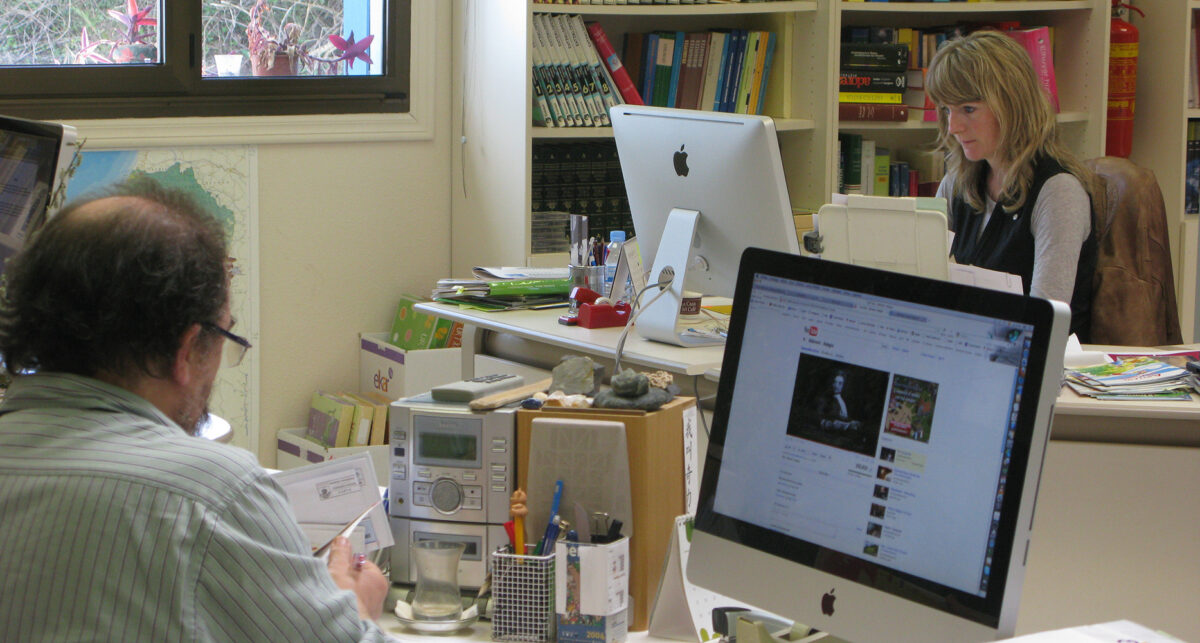
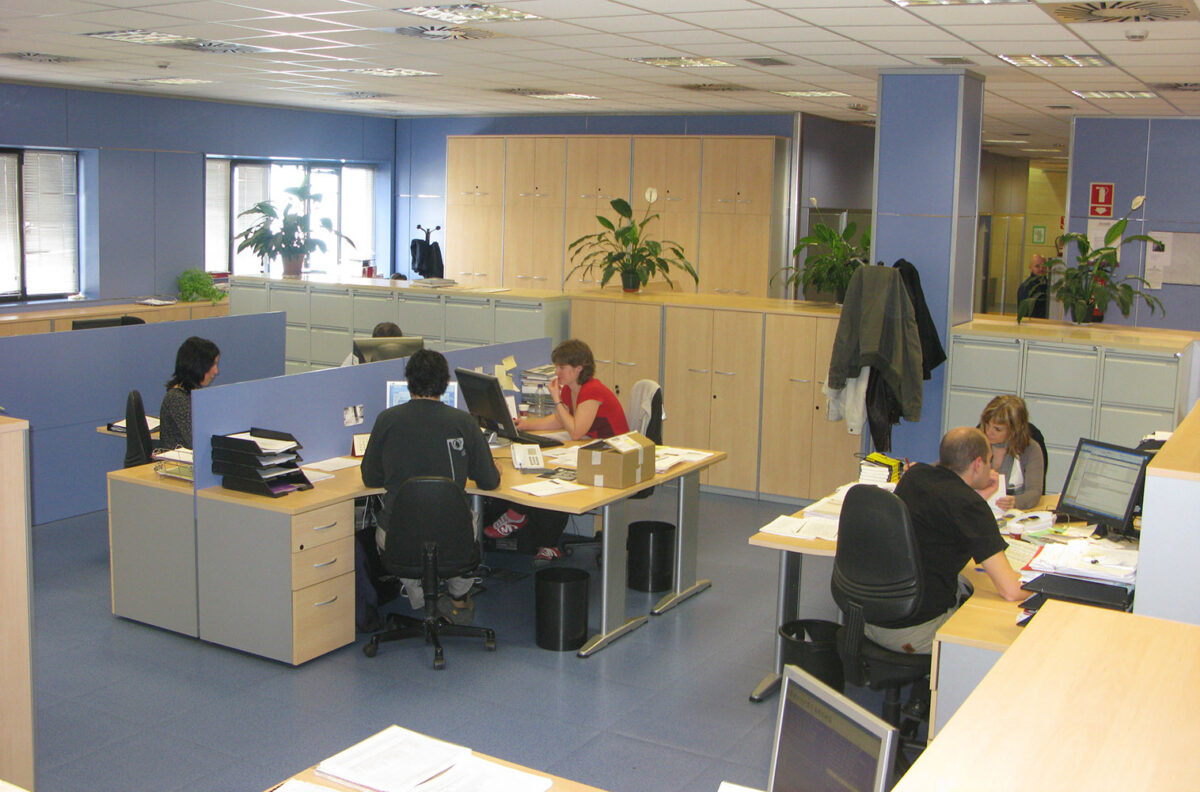
The 2010s
In the decade from 2010 the group undertook a process to restructure its companies and consolidated its distribution structures outside the Basque Country.
Main landmarks: the 2010s
2010
elkar Fundazioa, together with Katxiporreta kooperatiba and Berria, set up Irrien Lagunak Kluba.
Startup of the electronic bookshop www.gurebook.com, together with other Basque publishers.
Overhaul and startup of the website www.elkar.com.
Startup of liburu-denda laguna, an alliance with the bookshops Gerriko in Lazkao and Garoa in Zarautz.
2011
elkar Fundazioa and the national association of ikastolas set up Ikaselkar argitaletxea. After more than 20 years working together, the aim was to create and distribute curricular materials.
Opening of elkar Getxo liburu-denda.
Incorporation of Boza ediziogunea into Elkar argitaletxea.
Joan Mari Torrealdai was appointed president of elkar Fundazioa.
2012
Plazagunea becomes Egunea.
2013
The group’s structure and organisation chart were overhauled. New management were appointed to run the organisation. Renewal of the board of patrons of the Foundation and appointment of its Executive Committee.
elkar bookshops began to diversify their products.
2014
Startup of Martin Ugalde Ikerketa Beka. This was an initiative by Jakin Fundazioa, Berria Fundazioa, Elkar Fundazioa and Martin Ugalde Kultur Parkea in collaboration with Andoain town council.
Implementation of new technology to automate work in the main warehouse in Donostia.
The joint ventures ACL and MCL became 100% part of elkar Fundazioa.
Joxemari Sors was appointed president of elkar Fundazioa.
2015
The group company Eurollibres – formerly Casa del Llibre S.L., took over the book distribution businesses of JA Morcillo Distribución and Morci Mur.
Acquisition of the catalogue of IZ disketxea.
2016
Creation of elkar Sariak: Ibilbideari elkar Saria and Proiektuari elkar Saria. The Joseba Jaka grant to foster and support literary creativity was re-started.
2017
Siadeco undertook a “study of the reading and music habits of the inhabitants of the Basque ¨Country”.
The company Bateratu S.L. was created and a restructuring of the companies in the group began.
Acquisition of the Valencian company Dispe (educational distribution).
The Amilibro project was started up with the aim of setting up a network of bookshops around Spain.
Joxemari Sors and Jon Jaka were awarded the Bai Euskarari prize.
2018
The distribution company Bitarte was purchased and then included in elkar Banaketa.
2019
Elkar Taldea purchased Centro Andaluz del Libro S.A., based in Seville.
The Gipuzkoa provincial chamber of commerce awarded elkar Taldea its service company of the year prize.
The 2020s
At the start of the 2020s the group established its headquarters in Aduna (Gipuzkoa), from which it coordinated the whole of its distribution service in the Basque Country and elsewhere in Spain.
Main landmarks: the 2020s
2020
elkar Taldea purchased Unipapel eraikuntza, based in Aduna, Gipuzkoa province.
Première of the film and television series Lur eta Amets in cinemas (co-produced by Ikastolen Elkartea, Katxiporreta kooperatiba and Lotura films).
The elkar bookshop network was awarded the Boixareu Ginesta prize.
Death of Joan Mari Torrealdai, member of the board of patrons of the Foundation.
2021
elkar Fundazioa and elkar Taldea move their headquarters to Aduna.
Opening of elkar Barakaldo, successor to the Palenzuela bookshop.
